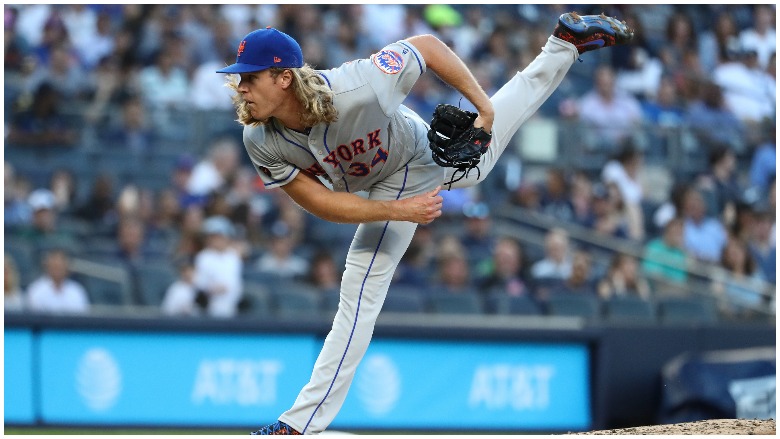
The New York Mets do have luck, but unfortunately none of it is any good.
New York’s turbulent, injury-plagued season continues, as starting pitcher Noah Syndergaard will be placed on the 10-day disabled list with hand, foot, and mouth disease, according to multiple reports.
Syndergaard made his most recently scheduled start Friday against the New York Yankees, allowing one run over five innings in a 7-5 win for the Mets against their Subway Series “rival.” The dip in velocity, which caused manager Mickey Callaway to make a mound visit, is also reportedly linked to Syndergaard feeling the effects of the virus, and not his right index finger.
According to John Ricco, Syndergaard reportedly contracted the virus after recently holding a camp for kids:
Thor is expected to miss only seven-to-10 days, but the real question is: What exactly is hand, foot, and mouth disease?
Hand, foot, and mouth disease, otherwise known as Coxsackie, is a specific viral infection.
According to the New York State Department of Health:
It causes a blister-like rash that, as the name implies, involves the hands, feet and mouth.
(Hand, foot and mouth disease is different than foot-and-mouth disease, which is an infection of cattle, pigs, sheep, goats and deer and is caused by a different virus)
Coxsackie is typically more prevalent in kids, but can be easily spread amongst adults.
The virus is highly contagious, and can be spread primarily by coughing and sneezing – moisture in the air – as well as unwashed hands. The virus can also be spread through contact with surfaces contaminated by feces, too.
Because of the peculiar nature of the situation, social media had a ball (no pun intended) with making fun of the Mets, as usual:
The viral infection won’t keep Syndergaard out long, but it most certainly counts as a minor setback considering the star pitcher’s recent return from the DL.
Comments
What Is Hand, Foot, and Mouth Disease?